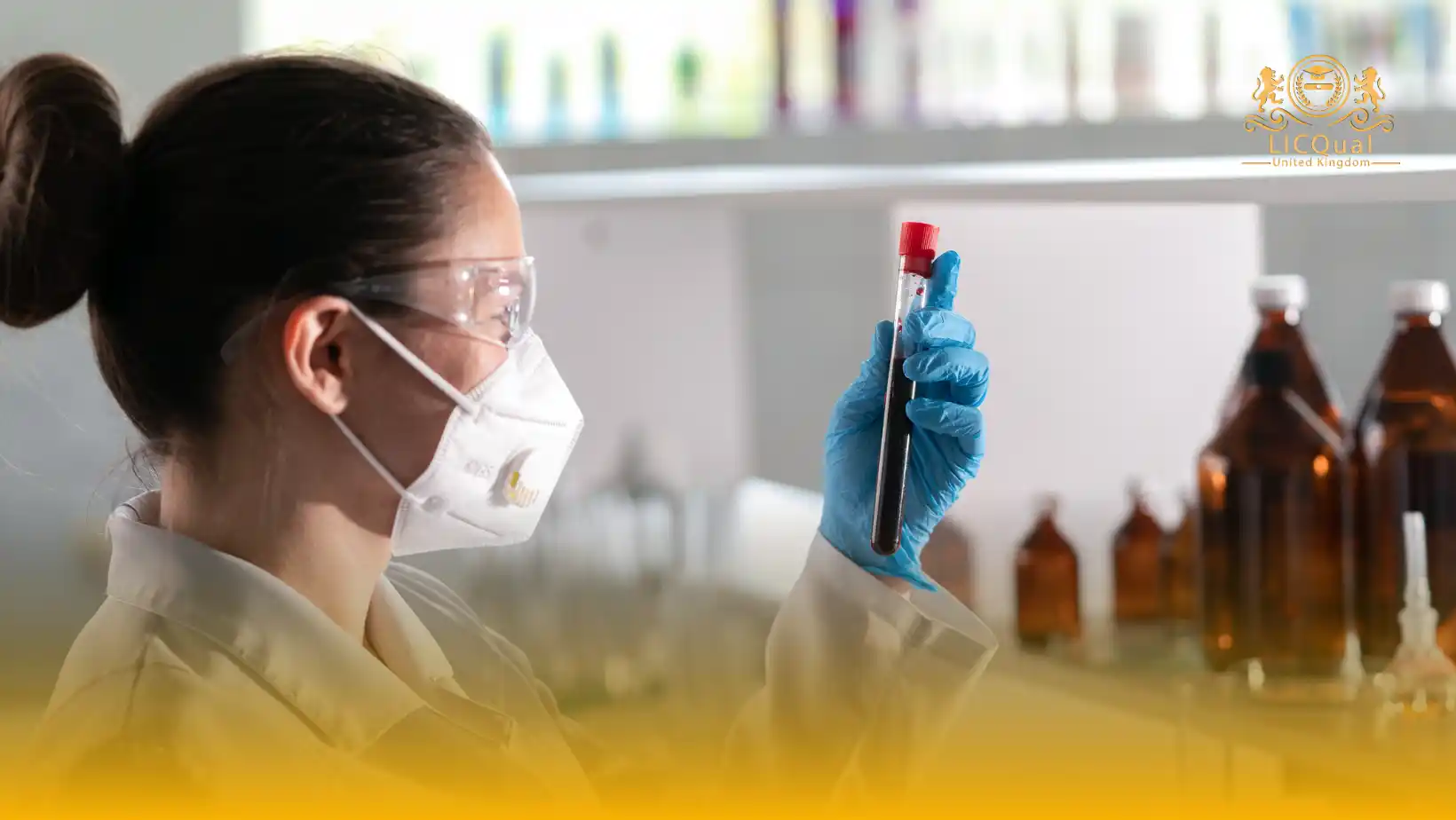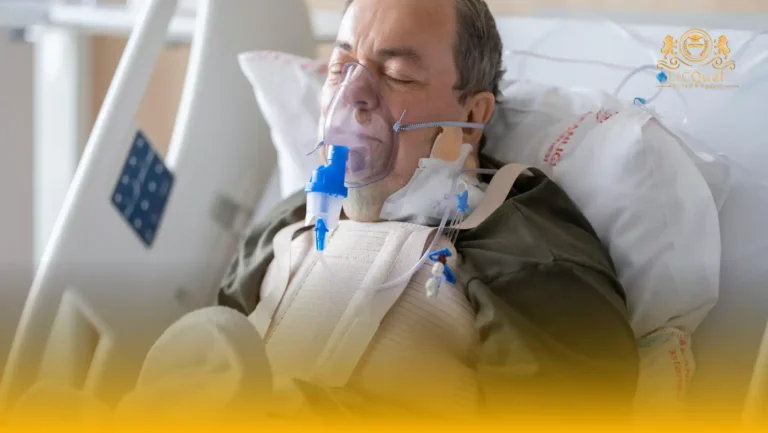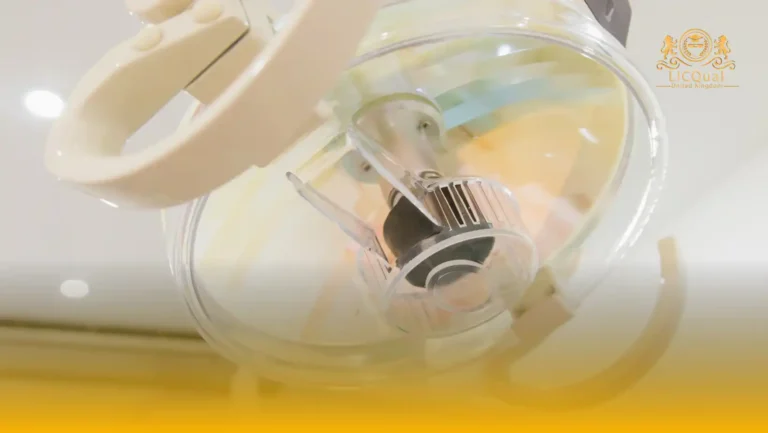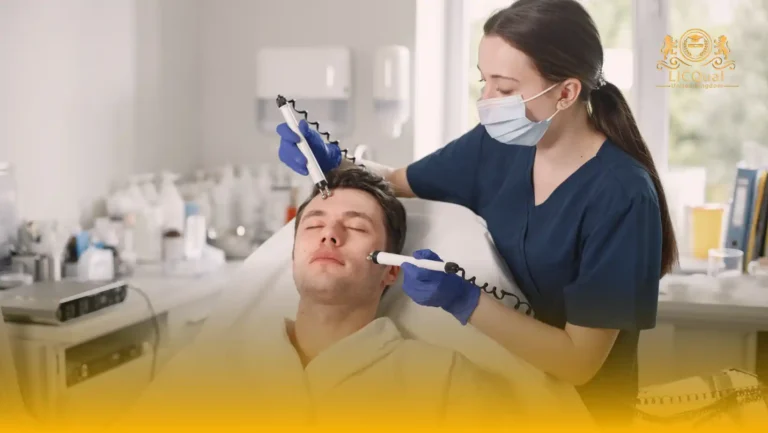The LICQual Level 6 Diploma in Forensic Medicine (Dip FM) is an advanced qualification designed for healthcare and legal professionals seeking to deepen their expertise in forensic medical practice. This Level 6 diploma is not intended for fresh entrants but is specifically aimed at experienced practitioners who wish to enhance their career prospects, broaden their professional knowledge, and strengthen their Continuing Professional Development (CPD).
Learners undertaking this diploma will gain a comprehensive understanding of the principles and practice of forensic medicine, including the medico-legal examination of injuries, evaluation of evidence, and interpretation of clinical findings in legal contexts. The programme equips learners with the skills to critically analyse complex forensic cases, apply evidence-based approaches, and maintain the highest standards of professional conduct. By completing this qualification, learners are well-prepared to take on specialist roles, advisory positions, or leadership responsibilities within medical, legal, and investigative teams.
Centres delivering the LICQual Level 6 Diploma in Forensic Medicine are required to uphold the highest standards of teaching and support. This includes employing competent and qualified staff and providing access to all necessary learning materials, practical resources, and clinical facilities to ensure learner success. A structured, resource-rich learning environment ensures learners not only acquire theoretical knowledge but also develop practical skills essential for professional excellence in forensic medicine.
Ideal for doctors, nurses, and allied health professionals involved in medico-legal work, this qualification offers a clear pathway to career advancement while promoting accuracy, professionalism, and integrity in forensic medical practice. Learners completing this programme will emerge with the expertise, confidence, and recognition needed to excel in the specialised field of forensic medicine.
Course Overview
Qualification Title
LICQual Level 6 Diploma in Forensic Medicine (Dip FM)
Total Units
6
Total Credits
120
GLH
480
Qualification #
LICQ2200933
Qualification Specification
To enroll in the LICQual Level 6 Diploma in Forensic Medicine (Dip FM), applicants must meet the following criteria:
|
Qualification# |
Unit Title |
Credits |
GLH |
|---|---|---|---|
|
LICQ2200933-1 |
Principles of Forensic Medicine |
20 |
80 |
|
LICQ2200933-2 |
Clinical Examination and Injury Assessment |
20 |
80 |
|
LICQ2200933-3 |
Forensic Pathology and Autopsy Procedures |
20 |
80 |
|
LICQ2200933-4 |
Sexual Assault and Abuse Investigation |
20 |
80 |
|
LICQ2200933-5 |
Forensic Toxicology and Laboratory Analysis |
20 |
80 |
|
LICQ2200933-6 |
Research, Evidence-Based Practice, and Professional Development |
20 |
80 |
By the end of this course, learners will be able to:
Unit 1: Principles of Forensic Medicine
By the end of this unit, learners will be able to:
- Critically evaluate the scope, principles, and role of forensic medicine within healthcare and legal systems.
- Analyse the ethical, legal, and professional frameworks governing medico-legal practice.
- Demonstrate understanding of professional conduct, confidentiality, and consent in forensic medicine.
- Apply medico-legal principles to real-world forensic case scenarios.
Unit 2: Clinical Examination and Injury Assessment
By the end of this unit, learners will be able to:
- Conduct systematic clinical examinations of injuries in medico-legal contexts.
- Accurately document and interpret physical findings for use in investigations and court proceedings.
- Critically analyse trauma patterns to differentiate between accidental, self-inflicted, and assault-related injuries.
- Apply evidence-based protocols in injury assessment and medico-legal reporting.
Unit 3: Forensic Pathology and Autopsy Procedures
By the end of this unit, learners will be able to:
- Explain the principles and scope of forensic pathology and its role in determining cause of death.
- Evaluate the procedures, protocols, and ethical considerations involved in autopsies.
- Interpret pathological findings to establish time, mechanism, and manner of death.
- Apply quality assurance standards in handling deceased individuals and medico-legal evidence.
Unit 4: Sexual Assault and Abuse Investigation
By the end of this unit, learners will be able to:
- Assess, document, and interpret medico-legal findings in cases of sexual assault and abuse.
- Demonstrate understanding of trauma-informed approaches to survivor care and support.
- Apply evidence collection and preservation techniques that meet legal and professional standards.
- Provide expert testimony and medico-legal reports for judicial proceedings.
Unit 5: Forensic Toxicology and Laboratory Analysis
By the end of this unit, learners will be able to:
- Explain the principles of forensic toxicology and its application in medico-legal cases.
- Analyse toxicological evidence, including drugs, alcohol, and poisons, within legal frameworks.
- Evaluate laboratory procedures, chain of custody, and quality assurance in toxicology testing.
- Interpret toxicology results to inform medico-legal investigations and expert testimony.
Unit 6: Research, Evidence-Based Practice, and Professional Development
By the end of this unit, learners will be able to:
- Critically appraise research, medical literature, and case law relevant to forensic medicine.
- Apply evidence-based practice in clinical and medico-legal decision-making.
- Design and conduct audits or quality improvement projects within forensic medicine.
- Demonstrate commitment to continuous professional development and reflective practice.
The LICQual Level 6 Diploma in Forensic Medicine (Dip FM) is designed for experienced professionals who are actively involved in healthcare, legal, or medico-legal practice. This qualification is ideal for:
- Medical Doctors and Physicians who are working in clinical, forensic, or medico-legal settings and wish to specialise in forensic medicine.
- Registered Nurses who support forensic medical services, emergency care, or work in custodial and legal environments.
- Forensic Scientists and Laboratory Professionals aiming to strengthen their understanding of medico-legal procedures and toxicology.
- Healthcare Professionals in Emergency and Trauma Care seeking to expand their expertise in injury assessment and medico-legal documentation.
- Legal and Law Enforcement Professionals who collaborate with forensic medical experts and wish to enhance their medico-legal knowledge base.
- Professionals Committed to Continuing Professional Development (CPD) who wish to update their skills and align with the latest forensic medicine practices.
- Learners Aspiring to Specialist or Leadership Roles in forensic medicine, medico-legal advisory services, or multidisciplinary investigative teams.
This diploma is best suited for professionals who already hold relevant qualifications and practical experience, and who are looking to advance their career, broaden their expertise, and contribute effectively to the field of forensic medicine.
Centres delivering the LICQual Level 6 Diploma in Forensic Medicine must ensure high standards of teaching, assessment, and learner support to guarantee successful outcomes. To deliver this qualification effectively, centres are required to meet the following criteria:
- Qualified and Experienced Staff: Centres must employ trainers, assessors, and academic staff with recognised qualifications and substantial professional experience in forensic medicine, pathology, toxicology, or related medico-legal fields.
- Access to Appropriate Resources: Centres must provide up-to-date textbooks, research journals, case studies, and digital learning platforms relevant to forensic medicine and medico-legal practice.
- Practical and Clinical Facilities: Centres should ensure learners have access to appropriate clinical, laboratory, or simulated environments where practical training and forensic case study applications can be carried out.
- Robust Assessment Systems: Centres are expected to maintain structured assessment methods, including written assignments, case analyses, practical demonstrations, and professional reporting tasks, aligned with international standards.
- Supportive Learning Environment: Centres must provide learners with access to IT facilities, study support, academic guidance, and pastoral care to enhance their overall learning experience.
- Quality Assurance and Compliance: Centres should operate in line with national and international education and healthcare standards, ensuring compliance with ethical practice, learner welfare, and continuous quality improvement.
By meeting these centre requirements, training providers will ensure that learners receive a high-quality, structured, and professional education in forensic medicine, preparing them for advanced roles in medico-legal practice, clinical settings, and investigative environments.
Assessment and Verification
All units within this qualification are subject to internal assessment by the approved centre and external verification by LICQual. The qualification follows a criterion-referenced assessment approach, ensuring that learners meet all specified learning outcomes.
To achieve a ‘Pass’ in any unit, learners must provide valid, sufficient, and authentic evidence demonstrating their attainment of all learning outcomes and compliance with the prescribed assessment criteria. The Assessor is responsible for evaluating the evidence and determining whether the learner has successfully met the required standards.
Assessors must maintain a clear and comprehensive audit trail, documenting the basis for their assessment decisions to ensure transparency, consistency, and compliance with quality assurance requirements.






